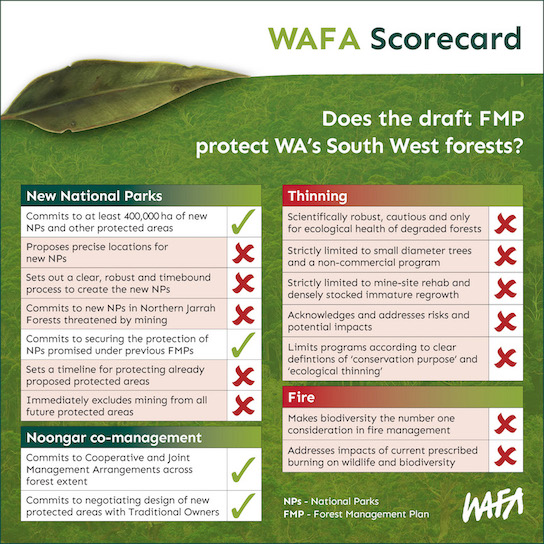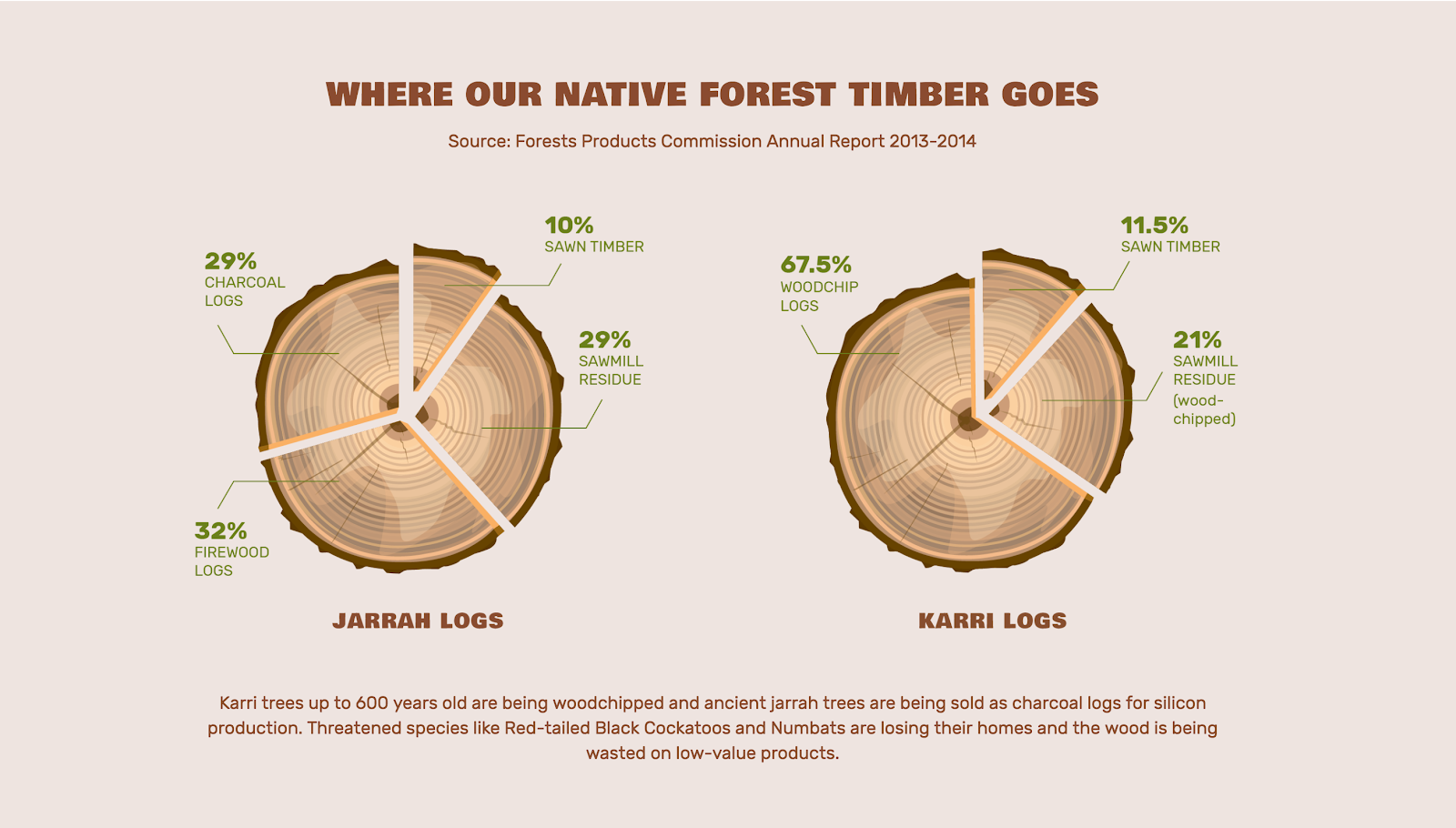Stop the chop
We have the policy, now we need the plan
Secure a forest protection plan for WA
The draft Forest Management Plan (FMP) for 2024-2033 has been published and we are on track to ending native forest logging and protecting at least a further 400,000 ha of the South West’s forests.
This is an incredible achievement that would not have been possible without the work that everyone in the forest community has done over the years. The next step is to secure a robust and reliable forest protection plan for 2024-33. This is our best chance yet to protect what’s left, and the future of the forests and their wildlife are depending on us acting now to get this right.
Public submissions to the darft FMP have now closed. The final Plan will be published in 2023.

WAFA’s Scorecard – does the draft FMP protect WA’s South West forests?
We are delighted that the draft FMP commits to four major tangible breakthroughs:
- Ending native forest logging
- Securely protecting at least a further 400,000ha of forest in National Parks and other protected areas
- Securing the protection of the 320,000+ ha of National Parks and other protected areas promised under previous FMPs, and
- Entering into cooperative and joint management agreements with Traditional Owners across the forests.
However, as we’ve been saying ever since the policy commitment to end native forest logging was announced, the work continues from here, and that is evident in this draft plan. Read our detailed assessment above for a full analysis and recommendations about what needs to change before the Plan is finalised.

WAFA’s submission on the draft Forest management Plan 2024-2033
WAFA’s submission seeks to secure a world-class protection plan for WA’s magnificent South West forests. We will be working hard through 2023 to ensure the best possible outcome for the forests.

New National Parks and other protected areas
In September 2021, the WA Government committed to end logging in native forests and protect at least another 400,000 ha in secure protected areas, but there’s still work to be done! WAFA’s submission to the draft FMP urges the State Government to use the Beyond 2024 mapping by environmental planner Daniel Jan Martin and commit to gazetting the new National Parks and other protected areas no later than the mid-term review of the FMP in 2028.
The Beyond 2024 mapping project proposes a comprehensive network of protected forest ecosystems based on strong environmental planning principles and has been developed in consultation with the community, scientists and Traditional Owners.
Worth more standing
There is a growing community demand in WA, as well as around Australia and the world, for native forest logging and clearing to stop, and for the timber industry to be transitioned to sustainable plantations and farm forestry. The decision by the WA Government to end native forest logging by 2024 has been met with jubilation across the forest regions of WA.
Business owners, farmers and tourist operators are all welcoming the new era of sustainable forestry based on plantations. Our forests are worth more standing than as charcoal, firewood and wood chips. The forests are valuable for climate and biodiversity, they also support many businesses from beekeeping to tourism.
Mick Ryan, of Wild at Heart – Pemberton is celebrating the decision to put an end to native forest logging because it means that the area’s natural beauty will be preserved, local businesses will flourish, and the workforce will diversify.
Cullen Wine’s managing director, Vanya Cullen, enthusiastically welcomes the decision to stop native forest logging as it will stimulate more jobs for regenerative agriculture and tourism. With tourism being the backbone of Margaret River, Vanya says that this is the best thing to happen for the region.
For farm forester, Julian Sharp, the decision to stop native forest logging in WA by 2024 is great news! With native forest logging being heavily subsidised by taxpayers in WA, growers like Julian Sharp have had to compete against the State Government when selling the plantation timber he has so carefully planted and nurtured for decades.
It is time for us to complete the transition out of native forest logging and use plantations and farm forestry for our timber needs.
#stop the chop
Join us
We have regular volunteer co-work days at Perth City Farm on Thursdays and Fridays, and plenty of opportunities to help at events and to get involved online from home in your own time.

